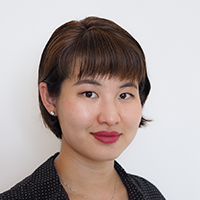Position: PhD Candidate
Current Institution: UC Berkeley
Abstract: Designing distributive learning algorithms for the societal good
From education to medicine consequential decisions increasingly rely on data-driven algorithms. Yet the long-term impact of algorithmic decision making is largely ill-understood and there exist serious challenges to ensuring equitable benefits from algorithmic systems in theory and practice. I am interested in the distributive impact of machine learning algorithms in society. In my work I develop mathematical models of how algorithmic systems distribute value and opportunity among different stakeholders and apply ensuing insights to design interventions that bring machine learning technology into alignment with societal values—fairness and long-term welfare. Beyond theoretical work I care about shaping the impact of machine learning on education via an on-going interdisciplinary collaboration that examines whether applied machine learning research is aligned with broader education goals such as education access. My research addresses two broad contexts: (1) Dynamic Impact of Machine Learning: Driven by consequential application domains such as algorithmic lending and hiring I study the dynamic interactions of machine learning algorithms and populations for the purpose of mitigating disparate impact; (2) Machine Learning in Markets: I articulate new design challenges for data-driven decision systems in economic markets that arise from the interplay between uncertainty and competition and devise algorithms to ensure fairness and efficiency even when market participants are decentralized.
Bio:
Lydia T. Liu is a fifth-year PhD student in Electrical Engineering and Computer Sciences at University of California Berkeley. Lydia’s current research examines the theoretical foundations of machine learning and algorithmic decision-making with a focus on societal impact and human welfare. She is the recipient of a Best Paper Award at the International Conference on Machine Learning a Microsoft Ada Lovelace Fellowship and an Open Philanthropy AI Fellowship.
